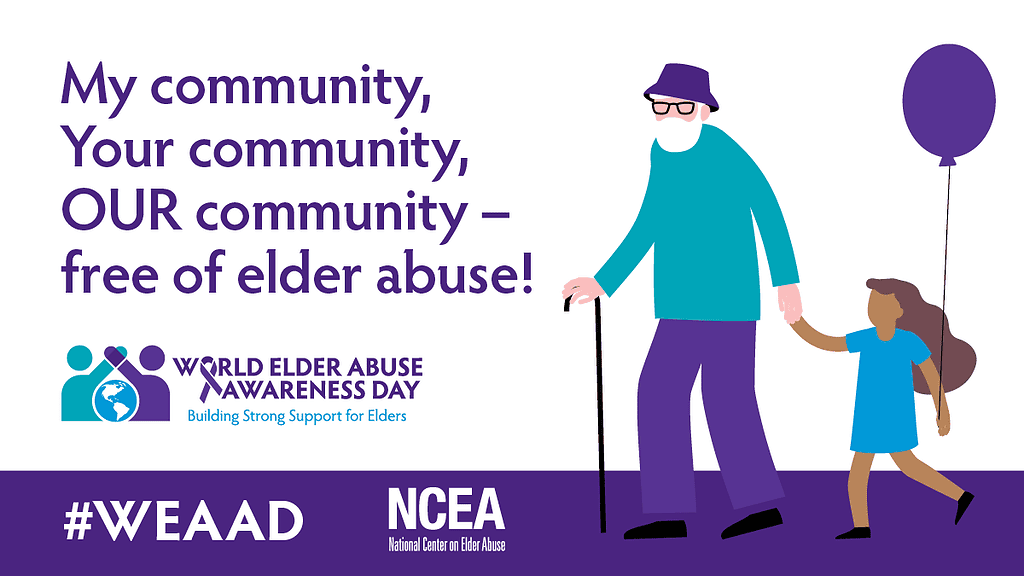June 15th is World Elder Abuse Awareness Day. Elder abuse is a topic we tackle a lot on the blog, and with good reason. About 1 in 10 older adults will experience elder abuse at some point in their lives- and those are just the cases that we know about! A study out of New York found that for every elder abuse case known to programs and agencies, 23.5 were unknown. It’s estimated that only 1 in 14 elder abuse cases are reported to authorities. Elder abuse is a silent epidemic that happens in every community, but there are activities we can do as individuals to raise awareness of the situation.
Education
- Know the signs of elder abuse
- Here’s a checklist for neglect, a form of elder abuse.
- Know where to find information about scam prevention
- The Senior Resource Connect Good Neighbor Training is an excellent tool to learn about the basics of abuse, how to report suspected abuse, and how to approach an older adult you suspect may be abused.
- The Senior Resource Connect Blog is another great resource for information about scams and elder abuse prevention. You can search the search box at the top of the page to find what you’re looking for.
- Share what you learn about elder abuse prevention with your friends, family, and coworkers and/or on social media.
- Make sure to talk to older relatives about common scams and how they can avoid them (an easy way to do this is by searching “scam” or “scam prevention” on our website. We cover this topic a lot!).
Fight Isolation
- Call and visit your loved ones regularly- especially if they live alone!
- Volunteer to visit older adults at senior centers, senior living facilities, and other locations in your community.
- Check in on people you know who are caregivers.
- The Senior Resource Connect Senior Resource Directory has a variety of resources for caregivers, including respite care so they can take a break.
If you think someone is being abused:
- Call Adult Protective Services at (855) 444-3911.
- Report abuse to the attorney general.
- Call 911 if someone is in immediate danger.
We can all take part in creating communities that are safe and inclusive for aging adults.






